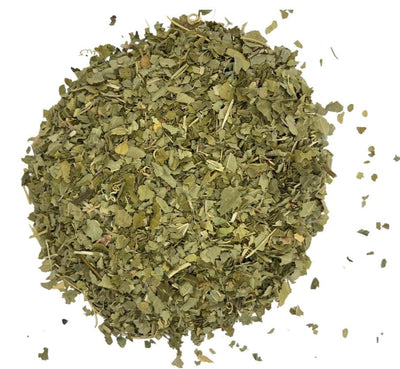The Health Benefits of Tea for Seniors
As we traverse the arc of life, the needs and capabilities of our body inevitably change. Our health and well-being become priorities that demand greater attention. In our search for wellness, we often stumble upon various means to maintain a healthy lifestyle, and one such potent yet straightforward tool is a humble cup of tea. A daily habit of tea-drinking not only appeases our taste buds but also bestows numerous health benefits that can enhance the quality of life for people of all ages, including seniors.

Understanding The Health Benefits of Tea for Seniors.
Tea, an elixir that originated in ancient China, has been celebrated globally for its myriad health benefits. As a natural source of powerful antioxidants, vitamins, and minerals, it plays a pivotal role in fortifying the body against illnesses and promoting overall health and well-being. Various compounds present in tea, such as catechins and polyphenols, are known to enhance bone strength and help ward off diabetes, respectively.
The Hydrating Powers of Tea
Proper hydration is vital for everyone, but it becomes even more crucial as we age. Seniors are at an increased risk of dehydration due to the reduced fluid reserve in their bodies, making it challenging to maintain adequate fluid levels. The sensation of thirst, too, diminishes with age, further escalating the risk of dehydration.
Emerging research posits that drinking tea in moderation can be as hydrating as drinking water. Each sip of tea delivers water and electrolytes to the body, helping seniors maintain their hydration levels and avert the negative effects of dehydration. Iced teas, infused with fruity flavours, can be an excellent way to keep hydration levels up, especially during warm weather. Check out our fruity ice tea collection, perfect for keeping those hydration levels up.

Tea's Role in Heart Health
A healthy heart is a prerequisite for overall well-being, especially for seniors, as the risk of heart-related ailments tends to increase with age. Tea, laden with antioxidants, can significantly aid heart health. It helps reduce the buildup of plaque in the arteries, ensuring easy blood flow throughout the body. This, in turn, lowers the risk of stroke and heart disease.
Certain teas, like black and green tea, may particularly benefit heart health by helping to lower blood pressure and reduce cholesterol levels. Hence, including black tea in the daily routine could be a step towards maintaining a healthier heart.
Tea for Diabetes Management
With a growing global prevalence, diabetes is a major health concern for seniors. Tea contains polyphenols, a compound known to protect against diabetes by sensitising the body's cells to metabolise glucose and control blood sugar levels. This reduces the risk of developing diabetes and improves insulin sensitivity. Try green tea, hibiscus, black tea, cinnamon tea or chamomile tea to help regulate blood sugar levels.
Strengthening Bones with Tea
Ageing often brings along the risk of developing osteoporosis, a condition characterised by a decrease in bone mass. As bone mass declines, the probability of fractures increases. Here's where tea comes to the rescue. It contains catechins, which fight osteoporosis by improving bone strength. Moreover, tea serves as a vital source of phytoestrogen and fluoride, both known to help maintain bone mineral density. Several teas can assist in strengthening bones:
- Nettle- Contains boron which is connected to maintaining calcium content in the bones.
- Chamomile - The flowers contain antioxidants called flavonoids and anthocyanins within the flower petals, and these are crucial elements for building youthful bone. Flavonoids are anti-inflammatory, and anthocyanins have been shown to facilitate communication between cells. Intercellular communication is vital for proper bone turnover.
- Rooibos - This ‘red tea’ from South Africa is rich in antioxidants and bone strength optimising minerals such as Magnesium, Calcium, Manganese and Zinc.

Rooibos Tea
Tea's Calming Effect on Insomnia
Many seniors suffer from insomnia, characterised by the inability to fall asleep or stay asleep. As black, green, and white teas contain caffeine, they should be avoided near bedtime, especially for those sensitive to caffeine. In contrast, herbal teas are caffeine-free and possess calming and relaxing properties. They can help alleviate stress and promote deeper sleep, essential for maintaining brain health in older adults. For a more in depth explanation, see our blog on tea for sleep and relaxation.
Several teas can aid with insomnia:
- Sleepy Tea : An organic blend of chamomile, lavender, rose, and passionflower, this tea can calm the mind and induce sleep.
- Chamomile: Chamomile contains apigenin, a flavonoid that effectively relieves stress and has a sedative effect.
- Valerian Root Tea: Valerian root is a potent sleep inducer and rose calms the mind.
- Passionflower: Long used as a mild sedative and sleep inducer, passionflower can be a helpful tool in managing insomnia.

Chamomile Tea
Reducing Inflammation with Tea
Many seniors with chronic conditions endure inflammation - the body's immune system response to an infection, injury, or irritant. Chronic inflammation can damage healthy cells, but tea, especially green tea, can help reduce it. Green tea contains polyphenols known to diminish inflammation. Several herbal tea ingredients, such as devil's claw, celery seed, ginger, nettle, and birch leaf, can also help reduce inflammation. At Tea by Birdy, we have a naturopath formulated herbal health tea which is effective at reducing inflammation and joint pain. Check out our arthritis tea here.
Tea as a Brain Booster
One of the remarkable advantages of tea is its ability to improve brain function and prevent cognitive decline. Regular tea drinkers have a lower risk of developing Alzheimer's and Parkinson's disease, thanks to the amino acid L-theanine in tea that regulates neurotransmitter and brain activities. Green tea catechins inhibit enzymes that form plaque on the brain and contribute to Alzheimer's disease. Furthermore, caffeine improves alertness and cognitive function, while L-theanine sustains the alertness over time, ensuring that you don't get caffeine jitters. Thus, green tea emerges as an excellent choice for maintaining brain health.
Tea and Mental Health
Beyond physical health benefits, drinking tea also positively impacts mental health. Tea contains the amino acid L-theanine, which can elevate mood by reducing feelings of stress and anxiety and stimulating dopamine, a feel-good brain chemical. Regular tea drinking can also lower levels of cortisol, the stress hormone. And indeed, there's nothing quite like a warm cup of tea and a good chat to brighten someone's day. Mood-boosting teas include chamomile tea, St John's wort tea, lemon balm tea, green tea, and ashwagandha.

Tea is great for your mental health and happiness
Delving into Tea Types and their Benefits for Seniors
Several types of tea, each with its unique properties, can cater to different health requirements for seniors.
Green Tea: Green tea is known for offering protection against various forms of cancers, aiding in weight management, enhancing heart health, and offering protection against Parkinson's Disease and Alzheimer's Disease. Additionally, it is effective in stress reduction.
Black Tea: This tea offers protection against cancers, aids in mental alertness, improves heart health and lowers cholesterol, maintains healthy gut bacteria, and helps in diabetes management as there's no need to add sugar.
White Tea: White tea provides protection against cancers, reduces the risk of heart disease, assists in weight management, protects teeth from bacteria, and offers protection against osteoporosis and inflammation.
Oolong Tea: Oolong tea is known for its properties of protection against cancers, anti-aging benefits, protection from diabetes, weight management, improving heart health, and boosting energy and mood.
Herbal Tea: The benefits of herbal tea are vast and specific to each type, including stress and sleep management, promoting skin, teeth, and nail health, aiding digestion, and acting as a sleep aid.
Drinking tea can be an incredibly beneficial habit for seniors looking to support their health and well-being. By incorporating tea into their daily routine, seniors can improve their physical and mental health. From its ability to support heart health, fight cancers, aid bone strength, and improve overall mental wellness, tea emerges as a powerful tool for promoting and maintaining senior health.
The sense of love and connectedness that comes from sharing a warm cup of tea with family and friends can be the ultimate mood booster. Embrace the golden years with our collection of teas tailored to the needs of seniors. Remember, moderation is key - aim for no more than eight cups of tea per day, or around 300 - 400mg of caffeine. It's always wise to check with a doctor before introducing new types of tea into your diet, especially if you're on medications. So, sip your way to a healthier and happier life with tea and check out our collection of tea for the 'golden years'.








